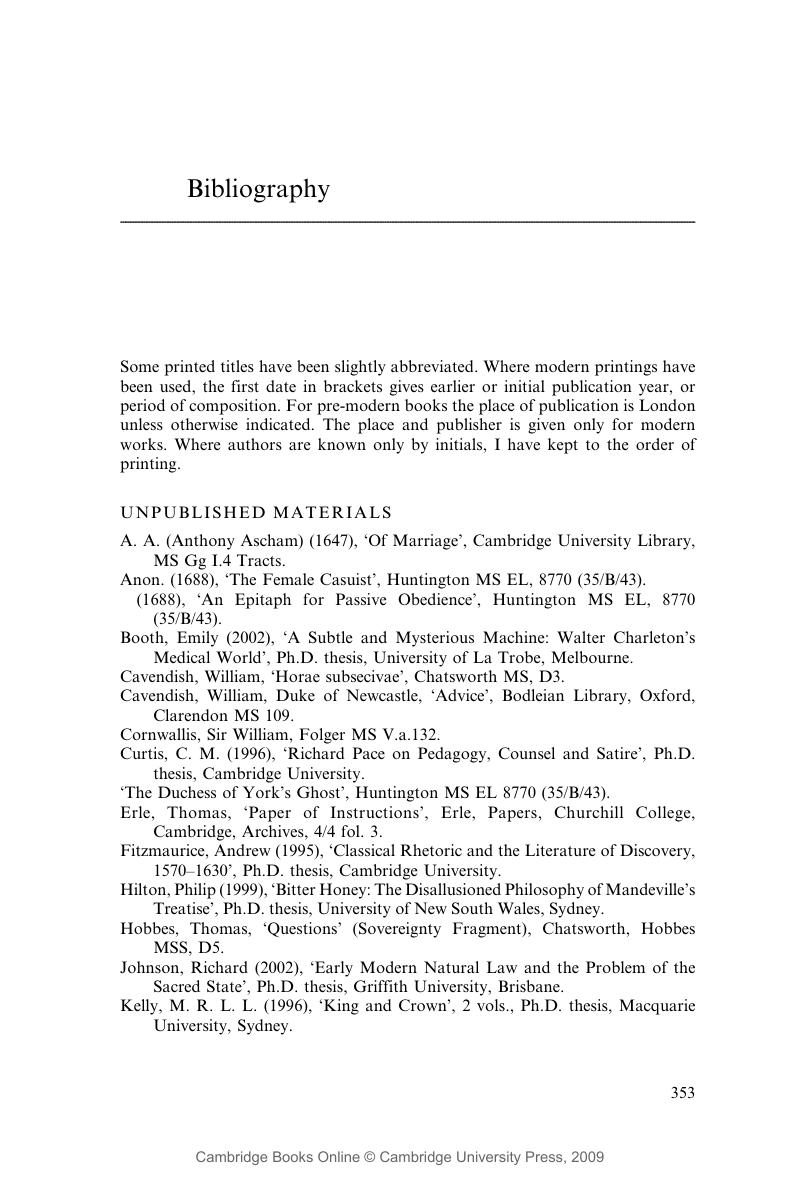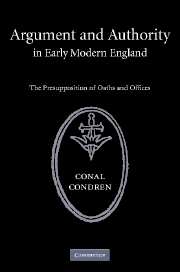Bibliography
Published online by Cambridge University Press: 28 October 2009
Summary

- Type
- Chapter
- Information
- Argument and Authority in Early Modern EnglandThe Presupposition of Oaths and Offices, pp. 353 - 390Publisher: Cambridge University PressPrint publication year: 2006

